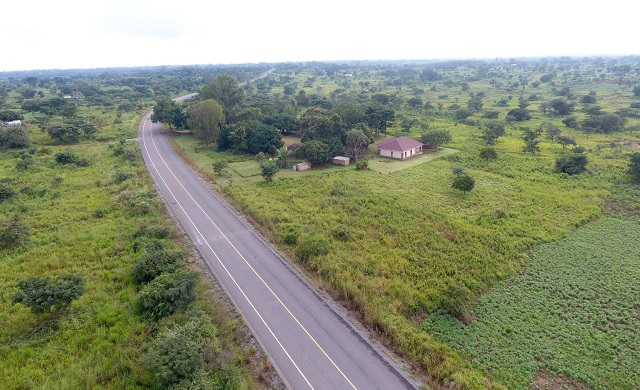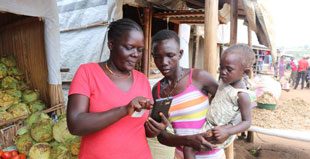
How a journey from a small town in northern Uganda to our capital city feels like from the first world to the third world
THE LAST WORD | Andrew M. Mwenda | Anaka is a small town on the road between Gulu and Nwoya, just before you enter the highway to Arua. Why is it part of the story I want to tell? Well, over the last two weeks, I have driven over 2,900km around Uganda from North Western Uganda (Arua) to South Western Uganda (Kabale). And because I have previously driven through the entire eastern region through Tororo, Mbale, Soroti up to Moroto and Nakapiripirit, I believe I have a good view of the national road infrastructure of Uganda.
The major national trunk roads are in very good shape. Those that are in bad condition like Mityana-Mubende and Karuma-Arua are under reconstruction. In one or two years they will be in excellent motorable condition. Even municipal roads in towns like Arua, Hoima, Mbarara, Kabale, Mbale, Soroti, Masaka, Gulu, Jinja etc. including the small town of Anaka are very good. In fact, I was impressed when I passed through Anaka to see that all roads in this small town are well done. The problem of roads in Uganda is largely a Kampala problem. Why?
Let me begin with a caveat. Uganda has a road network of 160,000km comprising 21,000km of national trunk roads, 38,600km of district roads, 20,000km of urban (city, municipal, town) roads and 80,000km of community access roads. Even with the best intentions, the highest levels of state efficiency and effectiveness and zero corruption, Uganda simply cannot have good roads across the entire country because of its low levels of revenue and therefore government spending. For instance, if we assume that it costs about $800,000 on average to build one of a tarmac (paved) road, Uganda would need $128 billion to pave her entire road network.
Now, this financial year, Uganda’s budget is Shs 52.7 trillion ($13.5 billion). But this is misleading because Shs 15.7 trillion ($4 billion) is rolled-over debt plus interest payments. So, the actual money available to spend by government on goods and services to citizens is Shs 37 trillion ($9.5 billion). Of the total road network, only 7,000km are paved (have tarmac). Let us assume all these 7,000km are in good motorable condition, that would be only $5.6 billion off the $128 billion needed to pave all the roads. This means that even if the Government of Uganda stopped spending on everything else: wages, energy, health, security, education, justice, energy, agriculture, tourism, trade, etc. and focused entirely only on building roads, it would need 13 years to pave all our roads.
Therefore, unlike many government critics, I have a very realistic view of Uganda’s situation. I can put up with many poor public goods and services in the knowledge that our state revenues cannot finance our aspirations in the quantity and quality of public goods and services. Yet, I am frustrated that the Museveni administration has ignored Kampala roads at a huge cost to our economy. Kampala and its surrounding district of Wakiso produces about 65% of our GDP and 75% of total tax revenues. It is therefore the goose that lays the golden egg of our national investment. Yet in this budget (2023/24), government allocated Shs 4.1 trillion to the roads sector of which Kampala got only Shs 40 billion i.e. 1 percent.
To just drive around Kampala city is an agonizing experience through the worst road network imaginable. Roads that were built over 50 years ago have been patched so many times without ever being rebuilt. Upper income areas such as Kololo, Bugolobi, Nakasero, Mbuya, Makindye, etc. have roads that are worse than those found in Bangui, Mogadishu and Juba, cities that have been in civil war forever. Many Ugandan commentators extrapolate from this horrific experience the argument that Uganda has bad roads. Yet as I stated above, its amazing how good roads in other towns are. I recently drove some friends through Hoima and Gulu towns and they could not believe their eyes. Everywhere you turn roads have been rebuilt. They wondered why Kampala has been neglected.
I always tell people that the problem of the Museveni government is not that it has not invested in roads. On the contrary, roads take a huge chunk of the national budget. Yet even with all our incompetence and corruption, and as already stated above, many of our national and town roads are in good condition. Why has Kampala been neglected? It is hard to tell but we can speculate. Museveni believes that the important thing is to connect the city to the rest of the country, not to itself. This is a wrong-headed idea. You need to invest in the most productive areas of your economy to generate more output and therefore more taxes to invest in the least productive areas.
But I also think the other issue is political. Kampala does not vote for Museveni and the NRM – and it is unlikely to change. Therefore, the rate of return in terms of votes because of improving the roads is very low. Even if this was not a conscious strategy, it would still apply. Those who sit in the governing councils of state such as cabinet are elected officials from other parts of the country. Their interest is to drive public funds to their constituencies where they get votes. True they live in Kampala and therefore suffer the costs of bad roads. But in the wider scheme of things, they would rather drive on bad roads in Kampala than lose their parliamentary seat in Anaka.
This disaster is compounded by opposition politicians. They win votes by blaming Museveni for the poor infrastructure in Kampala. Hence, even if there was a chance that in cooperating with Museveni, they could cause him to put more money in the city, they would not. Basically, the opposition have a vested interest in bad roads in Kampala because that is what gets them elected. The solution for Kampala is unlikely to come from the interests of elected officials. Therefore, our focus needs to move to bureaucrats.
Uganda’s civil servants have some power over the budget. When they sit in budget meetings at State House, civil servants from the Ministry of Finance, Planning and Economic Development can make an argument for Kampala and its contribution to our GDP and taxes and Museveni would listen. Has anyone had the courage to tell the president that allocating one percent of the road budget to a city that contributes 65% of GDP and 75% of tax revenues is self-destructive?
*****

amwenda@independent.co.ug
 The Independent Uganda: You get the Truth we Pay the Price
The Independent Uganda: You get the Truth we Pay the Price




Mr Andrew Mujuni, u make a very fallacious inference that opposition would like the status quo in order to get elected!! If I may ask: who leads the protests in Kampala against bad road network, is it the NRM sycophants or opposition? And just a few years ago former Kampala executive director Jennifer Musisi made great improvement on the road network around Kampala but still Kampalans remained resolute by resoundingly voting against the M7 regime, which vexed emperor who complained against lady Musisi! This prompted her unexpected resignation because everyone saw her good work apart from her appointng authority just because he lost Kampala vote miserably!
Last but not least, u make another ridiculous conclusion that u are the first Ugandan to drive 2900 kms around the country and therefore best placed to make an excellent case about the M7 infrastructure works. In between lines u don’t tell Ugandans who u assume don’t know/ travel on the same roads first the cost of construction per kilometer compared to neighboring countries. Secondly, the duration of these most expensive roads around the region.
In sum, per kilometer road construction in Uganda is the most expensive minus corruption, and in about two to three years these same roads will be full of potholes requiring to be rebuilt!!
So Mr Andrew Mujuni, stop being obsessed with a lie that u have the monopoly of knowledge about contemporary politics of the M7 regime.
Look around the African continent wherever there’s peaceful change of power (modest democracy), there’s rapid economic advancement. Examples are abound like at Tz, Kenya, Zambia, Mozambique, Ghana, Nigeria, yesterday Senegal added the list etc.all these countries’ per Capita income is categorized as lower middle income unlike Uganda’s!!!
Mwenda’s style of writing may indeed imply he has a ‘monopoly’ over matters Uganda and M7’s leadership, but he chooses his topics, and we make our own judgement, which can be close or wide away from reality.
But my concern is with how much you loath, it seems, you depict the state of affairs in Uganda while comparing her with surrounding states.
It is not immediately clear if your sample set of states doing better than Uganda as you claim is based on economic, political governance performance or security measures.
Ghana recently got bailed out after failing to pay it’s debts, the Nigerian economy is on a nose dive, it has lost not just it’s first place in Africa to South Africa, but it has lost even the second place to Algeria. That’s for economics, on the political governance plane Senegal has had a long tradition of peaceful transfers of power, but it did not miss anyone’s observation that there was an attempt to thwart that democracy tradition. We could go on but as am not sure on what parameter you based your objection, i’ll leave it here.